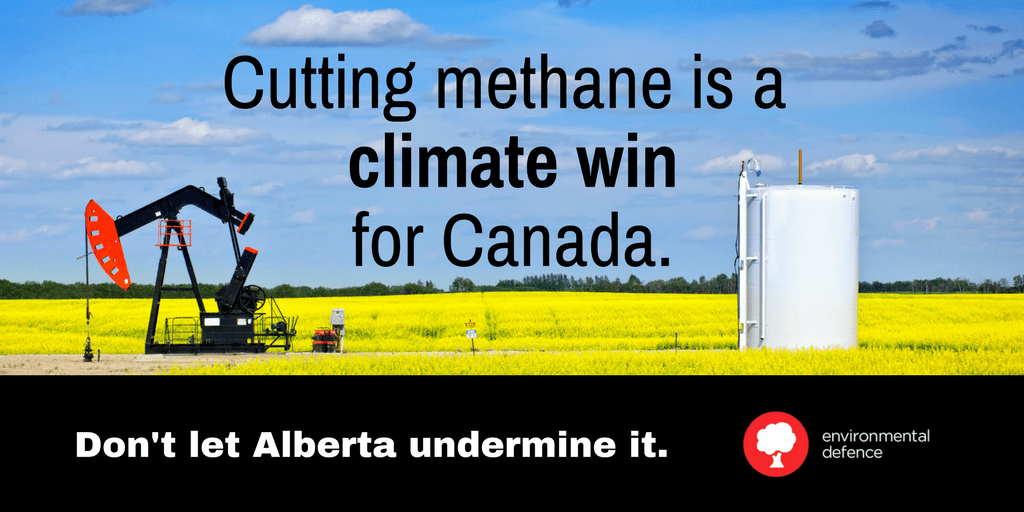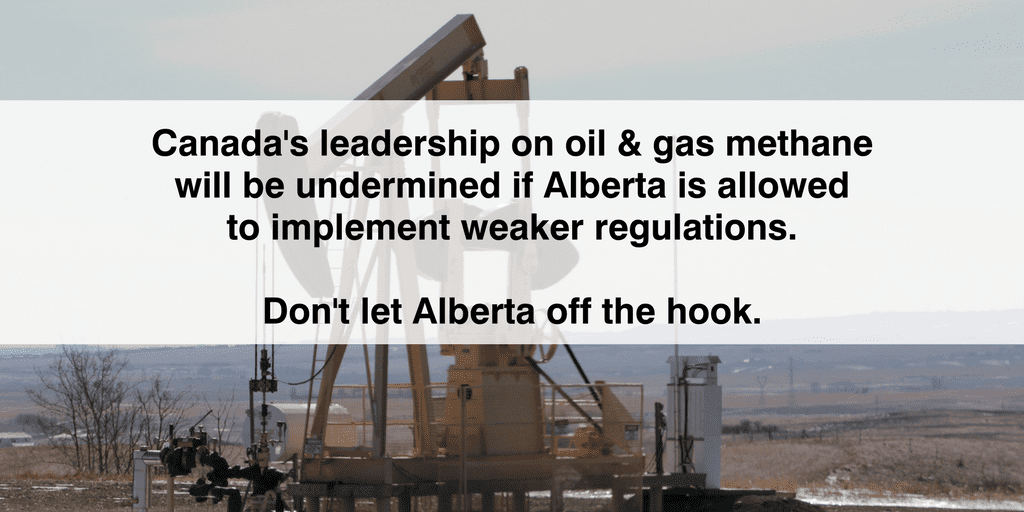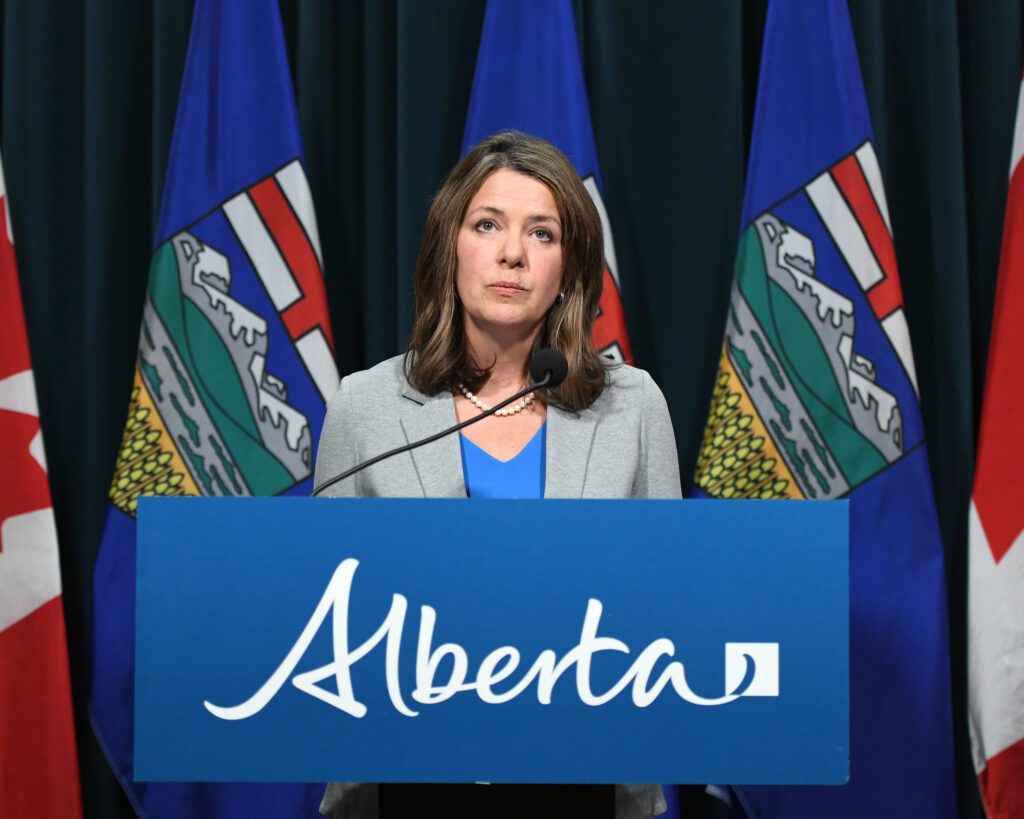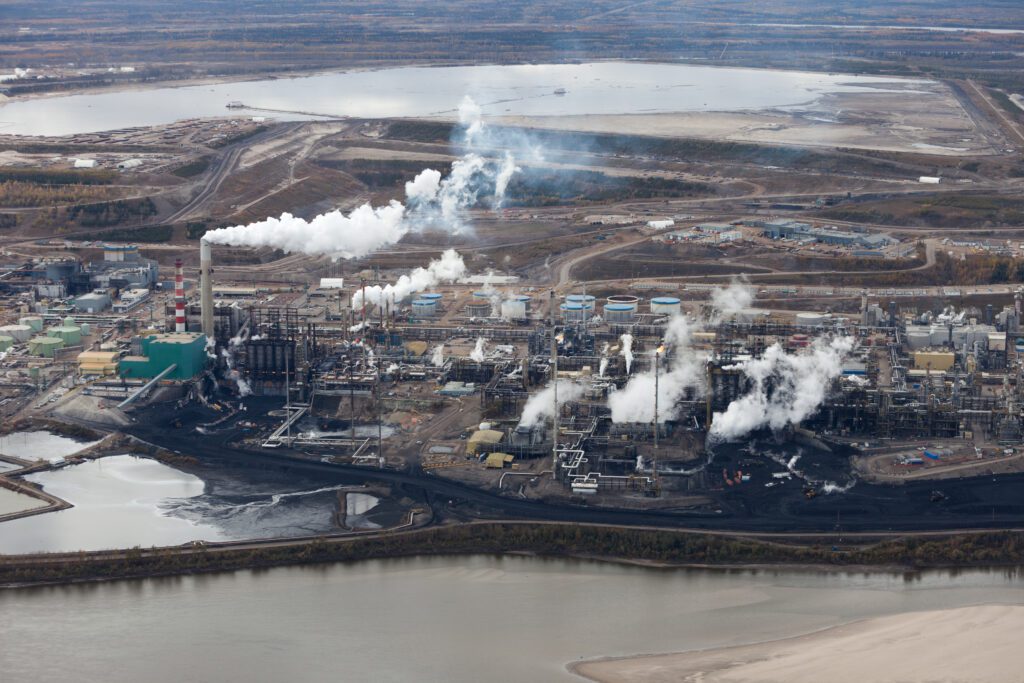This is a big deal. For the first time in Canadian history, oil and gas companies will be regulated for their carbon emissions. Last week, the federal government passed regulations to reduce methane emissions from oil and gas facilities, after a year and a half of consultations and policy development.
These new regulations will have a significant impact on Canada’s greenhouse gases, expected to reduce emissions by 20 million tonnes by 2025—the equivalent of taking about 5 million cars permanently off the road.
BUT…only if provinces don’t pass weaker regulations that supersede federal ones. And Alberta is trying to do just that. The Alberta government put out draft regulations on Tuesday that allow oil and gas sites to pollute more and monitor less. It also gives oil and gas companies the ability to not comply, since they are the ones who will be determining whether emission limits are being respected.
That’s in the face of a lot of research showing that methane emissions from Canadian oil and gas facilities are much higher than being officially reported.


A step on the road to a comprehensive approach to carbon emissions
This is the first big piece of climate policy from the Pan-Canadian Framework on Clean Growth and Climate Change (PCF) to finally come into place.
Methane is a potent greenhouse gas, more than 80 times more powerful than carbon dioxide over the medium-term. And people living in the vicinity of oil and gas wells will breathe easier when methane is reduced; that’s because emissions from oil and gas wells contain not only methane, but also other toxic chemicals that cause cancer or respiratory illnesses such as asthma.
The oil and gas sector is the largest and fastest growing source of greenhouse gas emissions—and methane emissions—in Canada. Other jurisdictions, including U.S. states such as Colorado, Wyoming, California, and Pennsylvania, have already passed regulations. Canada is playing catch up.
Inexpensive climate action
Canadian regulations will force oil and gas companies to monitor regularly for methane leaks, reduce the deliberate release of methane to the atmosphere (from oil storage tanks, for example), and require that high-emitting equipment such as pumps and compressors be replaced with low-emitting or zero-emitting alternatives. The regulations apply to both new and existing facilities.
Because technology is readily available to detect leaks and prevent the deliberate escape of methane, the activities that oil and gas companies will be mandated to do represent very low-cost climate solutions. The economic benefits far outstrip the investments that companies will have to make.
The federal government estimates that these regulations will create net benefits of $8.9 billion for Canada. That’s not just because of a reduced impact on the environment and climate change, though those are significant. Reducing leaking and vented methane means reduced waste, and an estimated $1 billion in methane can be captured and sold as natural gas.


The Canadian government must ensure provinces step up
Canada’s new regulations are some of the most comprehensive methane regulations anywhere, but now the attention turns to oil and gas provinces. The three western provinces in particular will likely seek to have their own regulations supersede federal ones. The federal government must ensure that those regulations provide the same or greater environmental benefits…or insist that the federal regulations will apply.
That may provoke a federal-provincial showdown if a province develops weaker regulations. And Alberta’s draft regulations are weaker. The federal government must make it clear that the federal rules apply until the provincial one is equivalent from an environmental standpoint. We will continue to watch this file develop within provinces so that action on methane can become stronger, but not weaker.
People powered change
I want to thank all the people who helped us push the federal government to get this done. Some people may think methane is boring, but still more than 12,000 people signed a petition calling for strong methane regulations.
It’s a good day for climate action in Canada. And I am hopeful that this creates momentum for other climate policies, such as phasing out coal plants, greening our fuels, putting a price on carbon, and increasing the number of electric vehicles available on the market.







